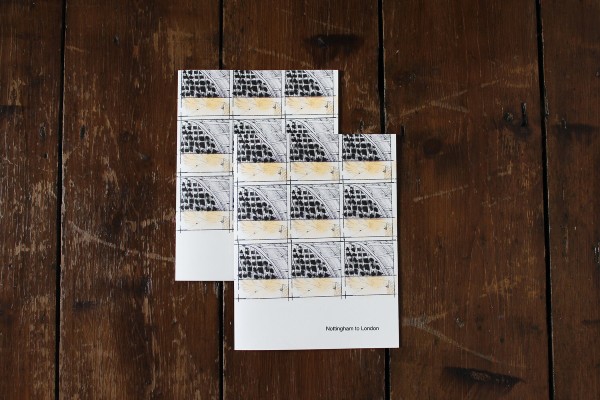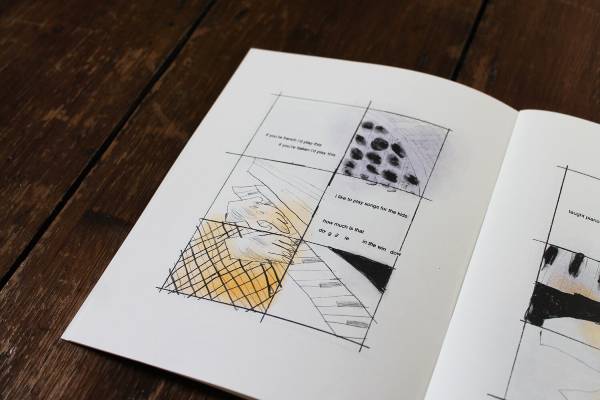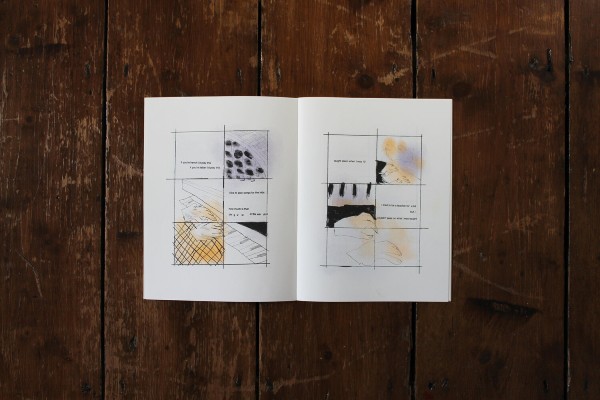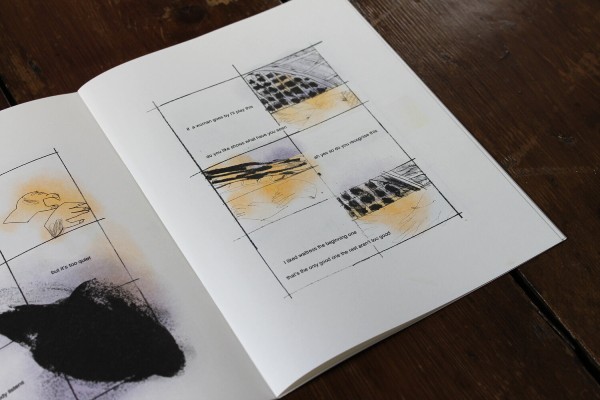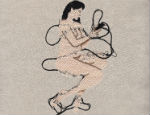One of a trio of new comics that Peony Gent debuted at Thought Bubble this year (see our review of Three Comics here for another of those offerings) London to Nottingham is about as close to a more traditional comics narrative from Gent as you will get from this pioneering force in visual poetry. Hearkening back to the approach of one of her previous comics Park Bench Kensington it gives us one half of a conversation in a public place. It’s less abstract than Three Comics but still employs many of those storytelling devices that have become such a signature part of her approach to the page.
By the public pianos at St. Pancras Station in London we listen to the responses from one side of a discussion by someone playing one of those instruments. Whether these interactions are Gent’s own or a constructed event remains elusive but I would imagine it is the former. Gent has a fine observational instinct for human stories and in recreating them on the page, which she does here in a stripped back way, characters unseen except for fingers on a piano, conversation presented in soundbite shards, devoid of wider context and yet somehow speaking all the more eloquently for that absence.
It could be argued that this selective presentation of dialogue asks us to fill in the narrative gaps for ourselves but I like to think that what Gent is doing here is more subtle and nuanced than that. That she is rather asking us to focus on our unseen “protagonist”; to boil things down to their character, their life, their experiences. “I like to play songs for the kids. How much is that doggie in the window.” “I went to see Wicked with the green lady… I left at half-time.” “I tried to be a teacher once but I couldn’t pass on what I was taught.” Fragments of lived experience scattered across the pages, both trivial and ephemeral and yet also packed with individual meaning and profoundness.
Text sits next to Gent’s familiar scratchy, representational interpretation of surrounding environment, adding to the sense that we are not so much observing events as immersing ourselves in the moment on a far more visceral and immediate way. A detached and yet strangely poignant coda acts as a solitary bookend to the story. You know the drill by now whenever I cover a Peony Gent comic at Broken Frontier. If you love experimental comics, alternative approaches to graphic narrative, and work that will stay with you long after you have finished reading it then you need to buy this. It’s as simple as that.
Peony Gent • Self-published, £12.00
Review by Andy Oliver





